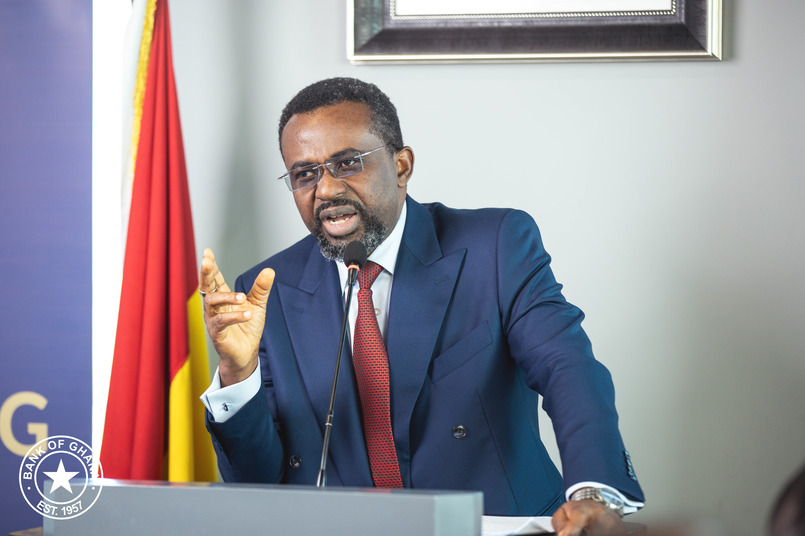Ghana’s central bank Governor Johnson Asiama on Tuesday attributed the rapid improvement and renewed confidence in the Ghanaian economy to synchronised policy implementation between the central bank and the Ministry of Finance.
Asiama said during a business breakfast meeting organized by Stanbic Bank that the local cedi currency had appreciated by over 42 percent between January and June 2025, reversing the declines over the previous two years.
According to him, gross international reserves stood at 11.1 billion U.S. dollars, providing 4.8 months of import cover, up from 8.98 billion dollars at the end of 2024 with a trade surplus of 4.14 billion dollars in the first four months of 2025, as exports grew by over 60 percent, mainly from gold, cocoa, and crude oil.
Moreover, the governor said the West African country’s current account surplus improved significantly to 2.12 billion dollars in the first quarter of 2025, compared to just 66 million dollars a year earlier, as remittance inflows remained resilient.
The governor stressed that the outcomes are more than just statistical improvement but mark a restoration of macroeconomic credibility, “the kind that markets, investors, and citizens respond to with confidence.”
“Today, the cedi has not only stabilized but has strengthened significantly, supported by robust external buffers, prudent monetary policy, coordinated fiscal consolidation, and renewed investor confidence,” Asiama noted.
He added that the outcomes were due to the firm monetary policy stance of the Bank of Ghana, raising and holding the policy rate at 28 percent, complemented by the government’s prudent fiscal management.
“What we are witnessing is the power of synchronized policy execution, where the central bank’s inflation-targeting mandate and the government’s expenditure rationalization converge to restore credibility, stabilize expectations, and anchor the cedi,” the governor added.
He urged, “We must now move from stabilization to sustainability and from headline gains to real sector benefits. That is the heart of our conversation.” Ghana’s three-year reforms, supported by the International Monetary Fund, have passed four successive reviews, with a sovereign credit rating agency, Fitch Ratings, upgrading the country’s long-term foreign-currency issuer default rating to “B-” from “restricted default” in June, after an upgrade by Standard and Poor from Selective Default to CCC+ in May.

